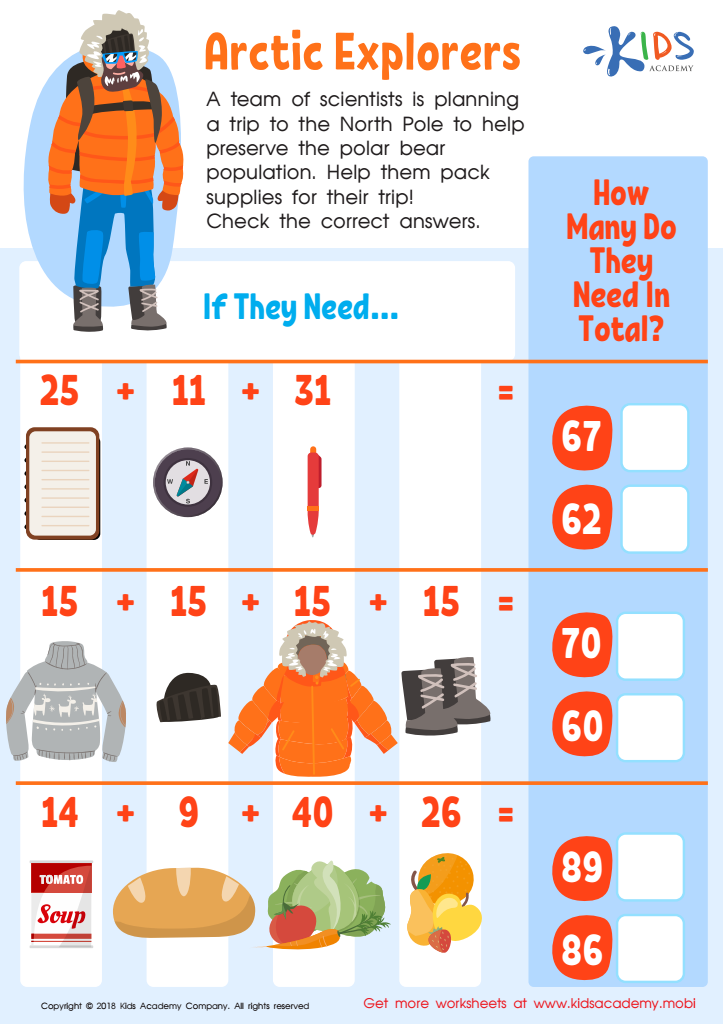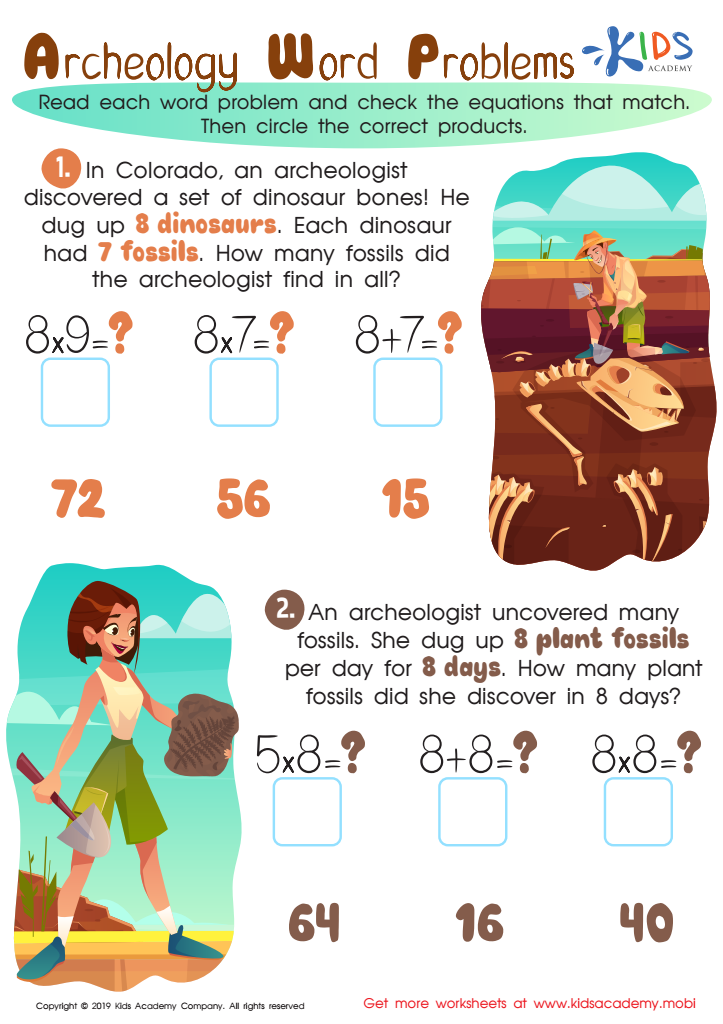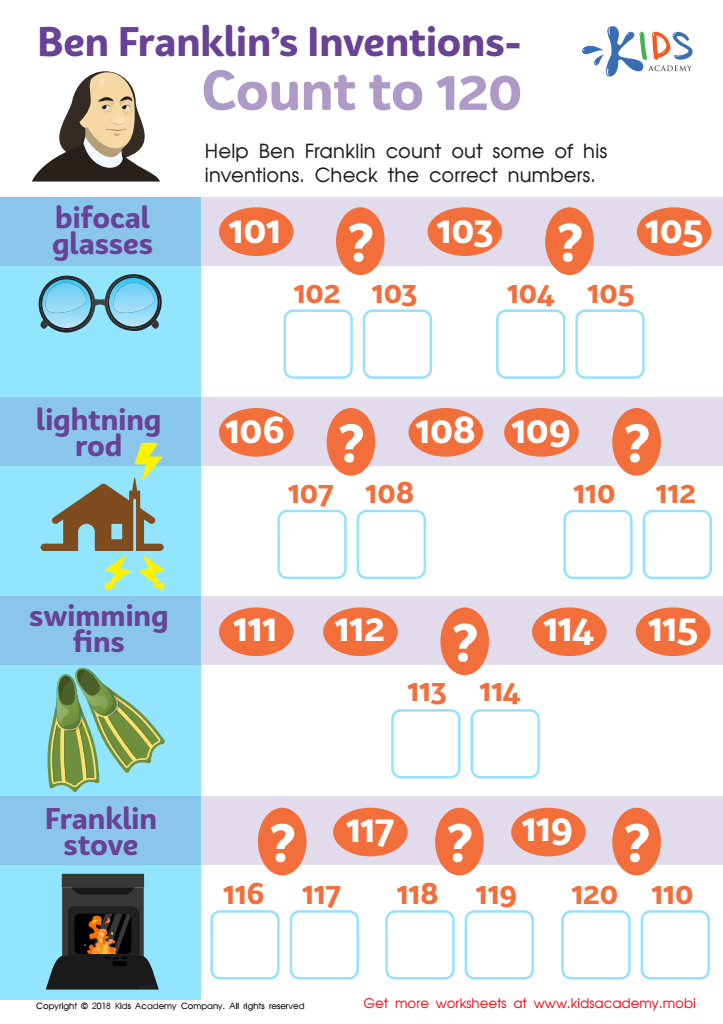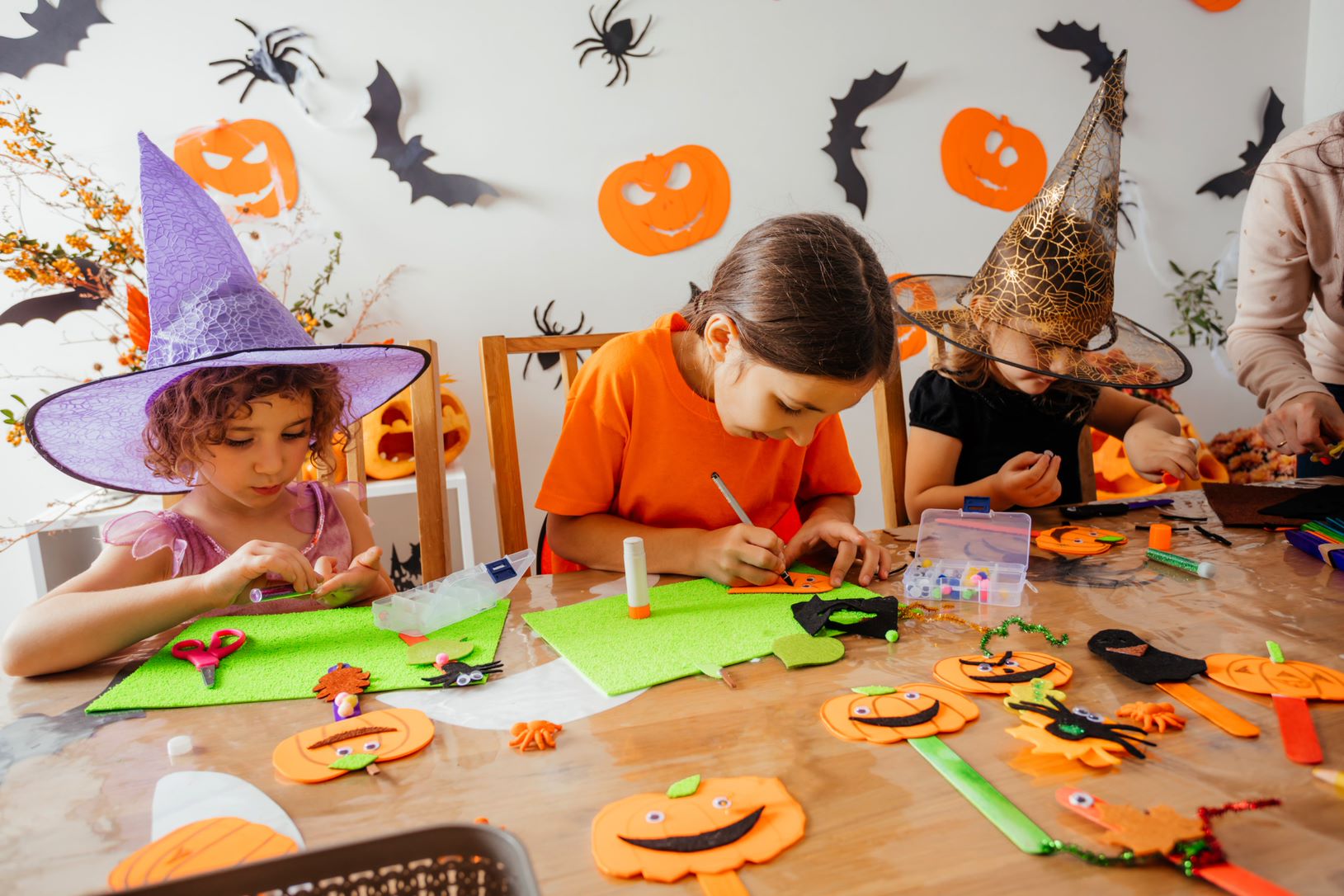Historical Knowledge Normal Math Worksheets for Ages 4-7
3 filtered results
-
From - To
Discover our engaging "Historical Knowledge Normal Math Worksheets" designed specifically for children ages 4-7. These thoughtfully crafted worksheets seamlessly integrate math skills with historical awareness, allowing young learners to explore the past while developing essential arithmetic abilities. Each worksheet features fun, age-appropriate exercises that encourage critical thinking and foster a love for history and math alike. Ideal for both classroom settings and home education, our worksheets promote interactive learning experiences. Dive into a world where math meets history, igniting curiosity and enhancing foundational skills. Perfect for young budding scholars, these resources make learning enjoyable and impactful! Explore our collection today!


Arctic Explorers Worksheet


Archeology Word Problems Worksheet


Ben Franklin’s Inventions – Count to 120 Worksheet
Parents and teachers should prioritize historical knowledge in the context of early math education for ages 4-7 because it enriches children's learning experiences and contextualizes their understanding of mathematics. At this developmental stage, children thrive on stories and connections, enabling them to see math not just as numbers and operations, but as part of a larger human experience.
Incorporating historical contexts into basic concepts—such as counting, measurement, and geometric shapes—can enhance children's problem-solving skills and critical thinking. For example, learning about ancient cultures can introduce concepts of trade using counting and simple addition or shape recognition through architectural elements.
Moreover, historical knowledge fosters cultural awareness and curiosity, helping young learners appreciate different cultures and perspectives. Such integration can make math more engaging and relevant, encouraging children to develop positive attitudes towards the subject.
By connecting math with history, educators can create a more holistic curriculum that nurtures a child’s cognitive development while also building social and emotional skills. This approach supports the idea that learning is meaningful when it is interconnected, making it an essential practice for fostering a love of learning in young children.
 Assign to My Students
Assign to My Students



















